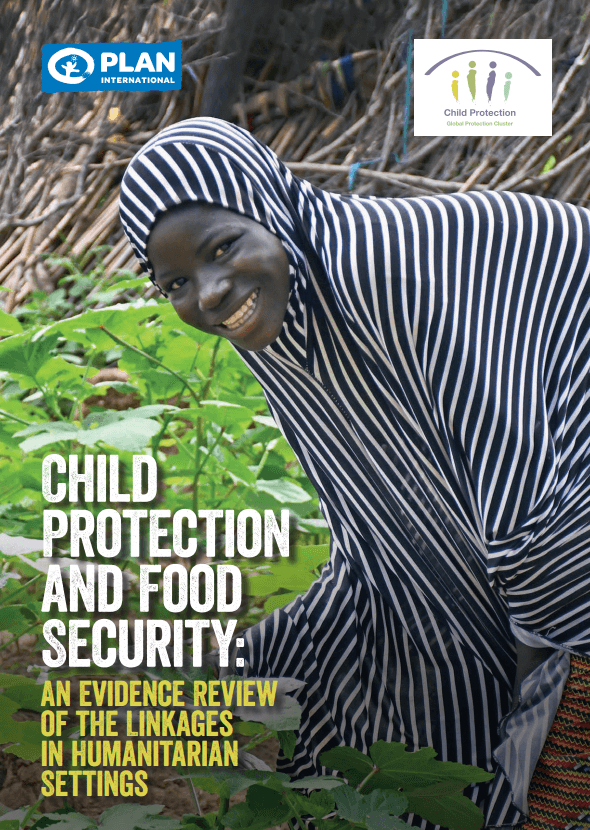Child Protection and Food Security
An Evidence Review of the Linkages in Humanitarian Settings
Food security is essential to children’s protection and well-being. Evidence shows that food insecurity negatively impacts children’s protection and well-being across humanitarian contexts, and that girls are particularly affected.

Plan International and the Global Child Protection Area of Responsibility are working in partnership to strengthen collaboration between child protection and food security actors.
Based on academic and grey literature and key informant interviews, this document outlines how food insecurity affects the protection and wellbeing of boys and girls living in humanitarian and fragile contexts.
Findings show that children’s protection is affected in the following ways:
- Food insecurity is linked with poor mental health and psychosocial distress of children and caregivers. This triggers various forms of violence against children.
- When children and families do not have enough to eat or money to buy food, they may resort to extreme coping mechanisms. This particularly harms girls’ protection.
- Children, especially girls, are exposed to various child protection risks while producing, searching for, or preparing food.
- Interventions to address food insecurity can also expose children to various risks.
The evidence review includes examples of how Child Protection and Food Security actors are working together to address these issues and key recommendations for donors and humanitarian practitioners.
Child Protection & Food Security: An Evidence Review
5.80 mb
French
5.75 mb
Spanish
5.93 mb
Arabic
5.42 mb
Portuguese
5.93 mb


